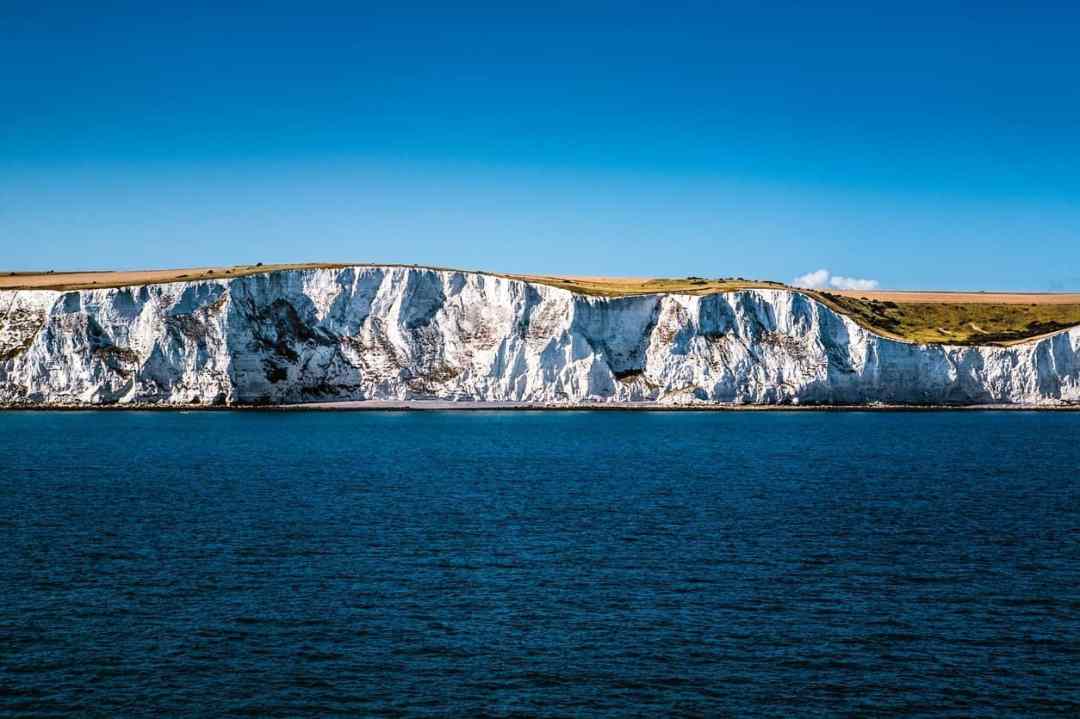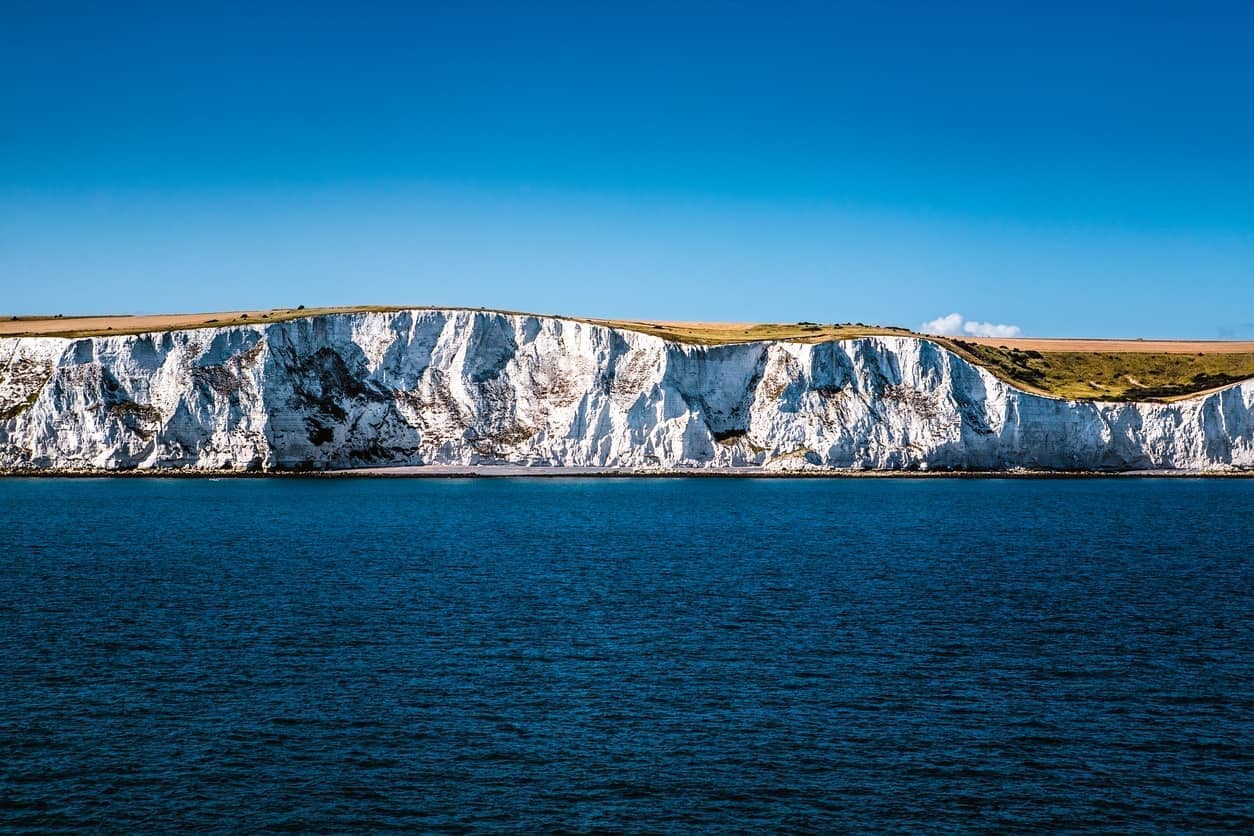Geography matters. Everyone knows that. It defines Britain’s current relationship with Europe and its battle over the Northern Ireland protocol and is visible every day that people cross the Channel in small boats.
But while geography clearly drives a country’s history, it also important to remember how much technological and historical change can turn that geography on its head as well. This flux holds the key not only to Britain’s past but also to its future.
Two geographical facts have dominated Britain’s story since 6000 BCE, when melting ice age glaciers lifted the sea to a level that physically separated it from the continent. First, the British Isles (obviously) became islands; and second, they still remained incredibly close to Europe. Britain’s whole history has been a delicate dance between insularity and proximity as technologies and governments have changed – driving even bigger changes elsewhere.
Britain’s past is complicated, but it ultimately boils down to just three phases. In the first, lasting 75 centuries between 6000 BCE and 1500 CE, after Britain was separated from the continent, proximity trumped insularity. Despite the changes over that period in technology and organisation, for this period neither ships nor governments could close the English Channel to prevent armies, traders, missionaries or microbes from trying to cross over. This made the Channel a highway, not a barrier. Meanwhile, the fact that the Atlantic was relatively impossible to cross made that ocean a barrier, not a highway. Britain was the edge of the world. Beyond it, said the Roman geographer Strabo, was just ‘destitution and loneliness, while the sea goes on’.
Britain’s whole history has been a delicate dance between insularity and proximity
This made Britain Europe’s poor cousin. The real centres of wealth, power and sophistication always lay far off in the Middle East and Mediterranean, where novelties of every kind – from farming and cities to writing and empires – were invented before spreading across Europe; and because Britain’s proximity trumped its insularity, all these innovations finally ended up in the Isles as well. This proximity also led to massive population changes in Britain. In the centuries after 4200 BCE, farmers tracing their ancestry back to the Middle East replaced three-quarters of the native population in Britain. After 2400 BCE, metal users coming ultimately from Central Asia replaced 90 per cent of the people they found. After 400 CE, Anglo-Saxons from Germany and Scandinavia replaced another one-third of Britain’s locals. And on it went. Being the poor cousin of Europe had its costs.
Britons tried endless ways to deal with this reality, from living in nomadic hunter-gatherer bands to being provincials in Rome’s Empire to slaughtering French knights at Agincourt. For 7,500 years, though, the fundamental fact remained that England’s history was about dealing with what came its way from the continent, while Wales’s, Scotland’s and Ireland’s were about dealing with what came their way from England.
This was still true in 1485, when France helped Henry Tudor kill Richard III and seize England’s throne. But by the 1590s, when Shakespeare wrote his play Richard III, it was not. There is a reason why Shakespeare (in Richard II) was the first to call his homeland,
‘a precious stone set in the silver sea,Which serves it in the office of a wallOr as a moat defensive to a house,Against the envy of less happier lands,This blessed plot, this earth. This realm, this England.’
If Thomas Malory had written this in the 1490s, let alone Chaucer in the 1390s, it simply would have made no sense to his readers. But in the sixteenth century, technology and new political innovations – galleons that could stay at sea for weeks and governments that could pay for lots of them – essentially remade Britain’s geography. For the first time in history, the Channel could be closed and the oceans to the West opened. Insularity finally trumped proximity. Secure behind their new moat, governments in London would unite the Isles into a single kingdom and go on to create an intercontinental empire on which the sun never set. The second phase of Britain’s history had begun.
In 1588, Queen Elizabeth had needed a lot of luck to close the Channel against the Spanish Armada. And for another century, there were violent clashes over whether Britons should even want governments and merchants strong enough to close the Channel and open the oceans. Hundreds of thousands died in civil wars fought largely over the question of Britain’s relationship to Europe. Only in the quarter-century between the Glorious Revolution of 1688 and the Peace of Utrecht in 1713 did Britain truly pivot from being a second-rate power on a European stage to being a first-rate one on an Atlantic stage.
This pivot was only possible because new kinds of technology and organisation had given Britain’s geography equally new meanings. The English Channel remained just 34 km wide, but Britain’s ability to close it meant that to Napoleon in 1805 and Hitler in 1940 it might as well have been a million miles. Similarly, the Atlantic remained 5,000km wide, but became a single, British-dominated, market. But organisation and technology kept changing. By the 1870s, great new mountains of money were rising up in Europe and North America, and since the 1970s, Japanese and then Chinese rivals have joined them in East Asia. By then, the world stage had long since grown beyond the size Britain could control. The third phase of Britain’s history had begun.
It was perhaps unkind of Dean Acheson, a former American secretary of state, to comment in 1962 that ‘Great Britain has lost an empire and not yet found a role’, but the search is still on for this country’s part on the new global stage. Should Britain now try to shelter in the shadow of the American mountain, should it move back towards the slopes below Brussels, or should it look instead towards Beijing? Alternatively, could it carve an independent path between the three peaks? Or even collaborate with the old English-speaking Commonwealth to heap up a fourth hill of its own? The script for Britain’s third age has still not been written.
In 2016, Britons faced a burning question, but the one on the ballot that summer – ‘Should the United Kingdom remain a member of the European Union or leave the European Union?’ – was not it. The Brexit debate was simply a distraction, because the 21st century is going to be about Beijing, not Brussels. The real question is where Britain – and, for that matter, the rest of the West – will fit best on a world stage which is tilting eastwards.
Geography decides our destiny, but it does not tell us what to do with it.







Comments